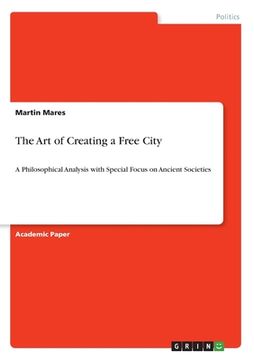The Art of Creating a Free City: A Philosophical Analysis with Special Focus on Ancient Societies (en Inglés)
Reseña del libro "The Art of Creating a Free City: A Philosophical Analysis with Special Focus on Ancient Societies (en Inglés)"
Academic Paper from the year 2013 in the subject Politics - Basics and General, grade: A, Birkbeck, University of London, language: English, abstract: This paper defends a unique understanding of the nature and purpose of "art" or "the arts." It goes beyond standard typologies of the arts as music, poetry, epic poetry, theater, painting, sculpture, architecture, and so on. It goes beyond the views of David Hume and Immanuel Kant, who thought of the arts as leisure time activities that stimulate the senses in some way and add a certain quality of human life. For Hume and Kant, the truly serious human endeavor was scientific inquiry, whether understood as Hume's empirical skepticism or Kant's a priori rationalism. In both cases, scientific inquiry is the only path to truth. For Kant, science is emotionally detached, universally true, objective, and the cause behind a new level of human evolution. For an empiricist, science is based on data that is collected and distorted with as little emotional and cultural bias as possible. The arts, by contrast, are expressions and reflections of emotions and cultures. Both philosophers enjoyed the arts and thought of them as part of a complete human life, but they both trivialized the nature and power of the arts. They insisted upon detaching the arts of earlier societies from any claims about a supernatural realm and the connection between human nature, nature, and some kind of deity or deities.They do not give us scientific knowledge or knowledge about the ultimate meaning of human life. For Hume, we have no such knowledge. For Kant, the exercise of human reason and the indirect proof from the exercise of reason to the belief in God is the proper way to address questions of ultimate meaning. Religious belief is based on reason and our knowledge of its limits and must be separated from emotion and the arts. Ancient societies, in contrast, took the arts much more seriously. The painting, sculpture, music, architecture, and so f

